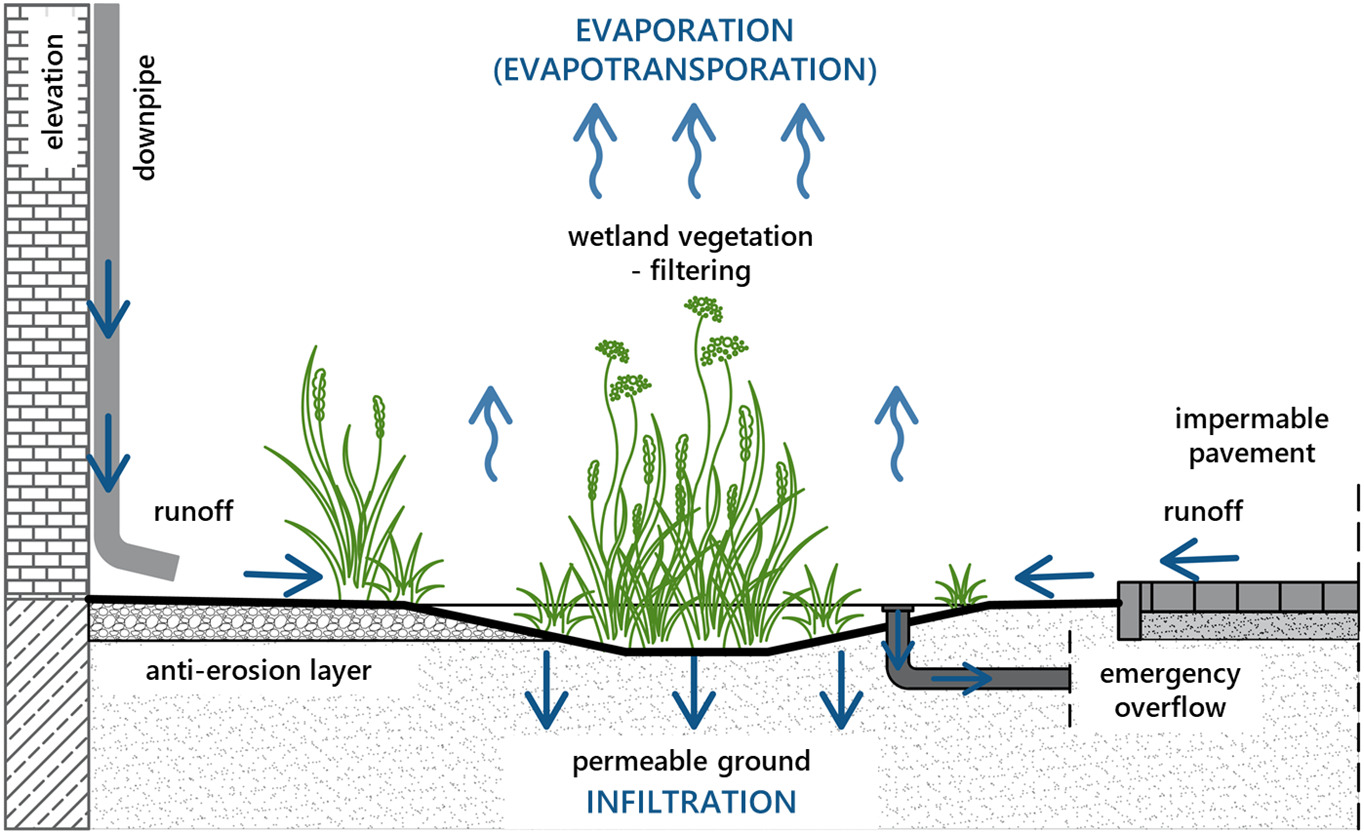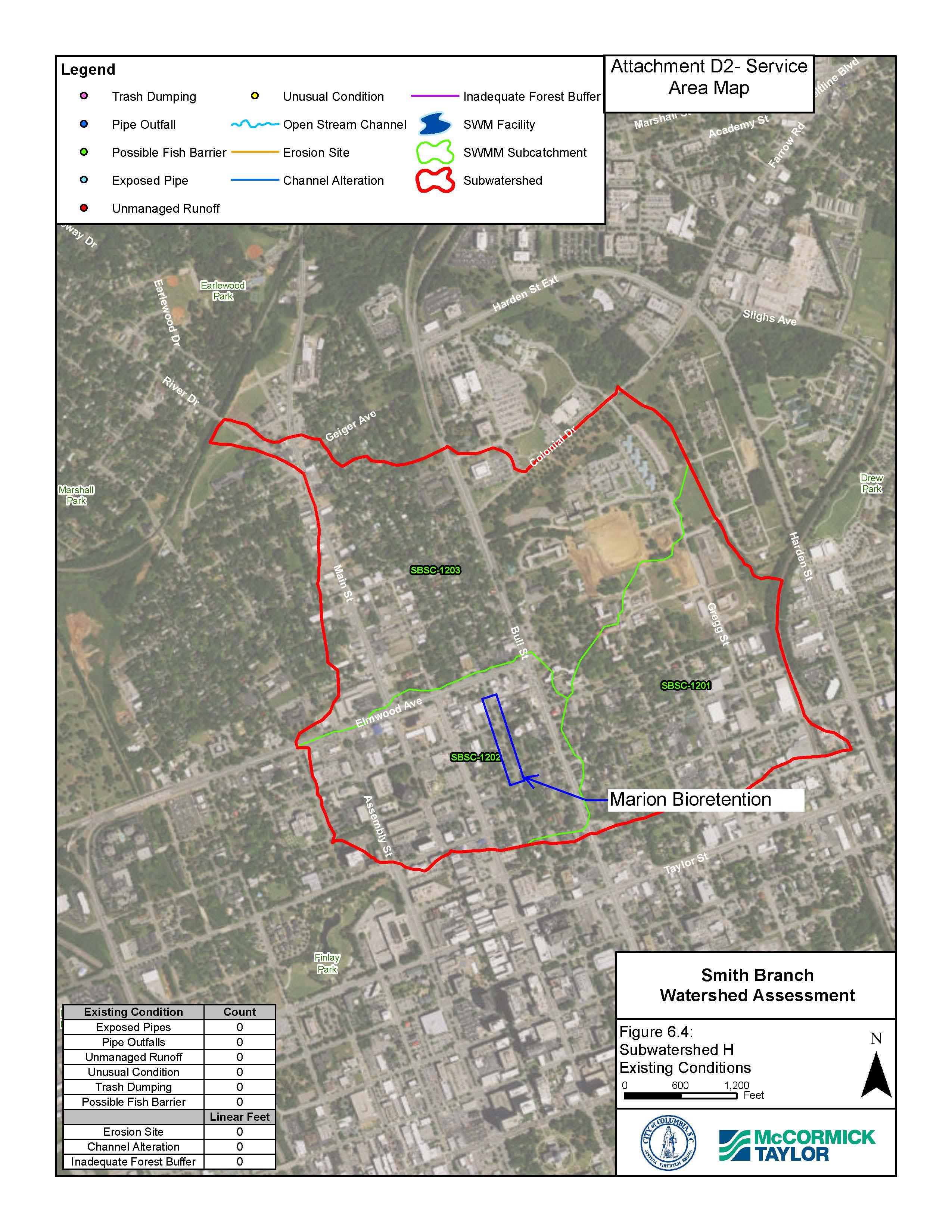About Us
 The Official Web Site of the State of South Carolina
The Official Web Site of the State of South Carolina
Hurricane Helene overview information here | SCOR Disaster Case Management Services: 1-803-898-2511
Applications open September 1, 2025 - January 30, 2026 for Hurricane Helene CDBG-DR Mitigation Set-Aside Program here.
Applications open January 1, 2026 - March 31, 2026 for HUD CDBG-MIT Voluntary Buyouts here.

Columbia, SC - The South Carolina Office of Resilience is happy to announce that construction is set to begin on the City of Columbia- Marion Street Bioretention project on January 6, 2025. The project is funded by $1.9M from SCOR’s American Rescue Plan Act (ARPA) Stormwater Infrastructure Program (ASIP). The project will reduce flooding in the area of Marion Street between Elmwood Avenue and Laurel Street by replacing the existing underground stormwater infrastructure and adding five bioretention cells to the system.
Bioretention is a form of green infrastructure, which are infrastructure projects that utilize or mimic natural systems. With bioretention, stormwater is directed into a shallow, depressed area – often referred to as a rain garden. The garden, or bioretention cells, are filled with native plants that retain water while it infiltrates into the ground, or is released into the air through the plants’ leaves and stems.
The Scheme of a Rain Garden

“The City is looking to improve the water quality in the Smith Branch water shed through the use of natural filtration in the Marion Bioretention Cells,” says Aaron Marshall, Civil Engineer at the Columbia Water Department of Engineering. “The cells will filter runoff storm water that ends up in the Broad river. The project will also replace some asphalt with vegetation and upgrade some aging storm drainage pipes.”
This is one of several green infrastructure projects in SCOR’s mitigation program. “It’s important to us to work on projects that holistically reduce SC communities’ flood hazard risks while also improving related outcomes for local residents,” explains Chief Resilience Officer Ben Duncan. In addition to capturing stormwater and reducing downstream flooding, the project will also improve water quality in the Smith Branch watershed by capturing and filtering pollution in the heavily urbanized area using native plants.
Additionally, the project benefits from the support of South Carolina legislators. SC State Senator Russell Ott states, “I join with the South Carolina Office of Resilience, the City of Columbia, and others in celebration of the $1.9M to assist in modifying the underground stormwater infrastructure system in the area of Marion Street between Elmwood Avenue and Laurel Street. I, as the Senator for District 26, represent this area of Columbia and am committed to supporting efforts that will reduce flooding and improve both our business and residential community. Additionally, the minimization of environmental stresses from flood water runoff is key. This will be an all around win for this area, and I look forward to working with everyone to see this completed.”
Following the design and permitting phases, which the City of Columbia funded and managed, the project’s construction phase will be state-run and managed by SCOR.

About SCOR: The South Carolina Office of Resilience (SCOR) is committed to enhancing the state's ability to anticipate, absorb, recover, and thrive when presented with environmental changes and natural hazards by planning and coordinating statewide resilience, long-term disaster recovery, and hazard mitigation. In addition to serving 3,459 homes in our Disaster Recovery Program, SCOR has 81 active flood mitigation projects, including voluntary buyouts, stormwater infrastructure, and plans and studies, across the State. SCOR continues to implement and maintain the Strategic Statewide Resilience and Risk Reduction Plan, which provides a framework to guide investment in projects, programs, and policies to protect the people and property of South Carolina from the damage and destruction of extreme weather events.